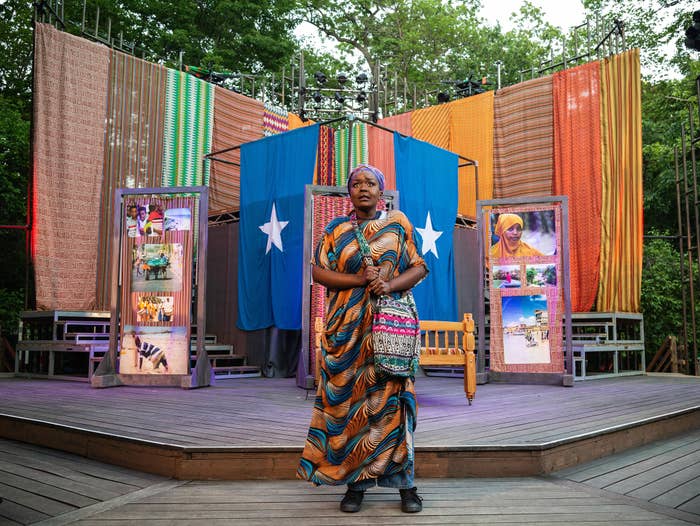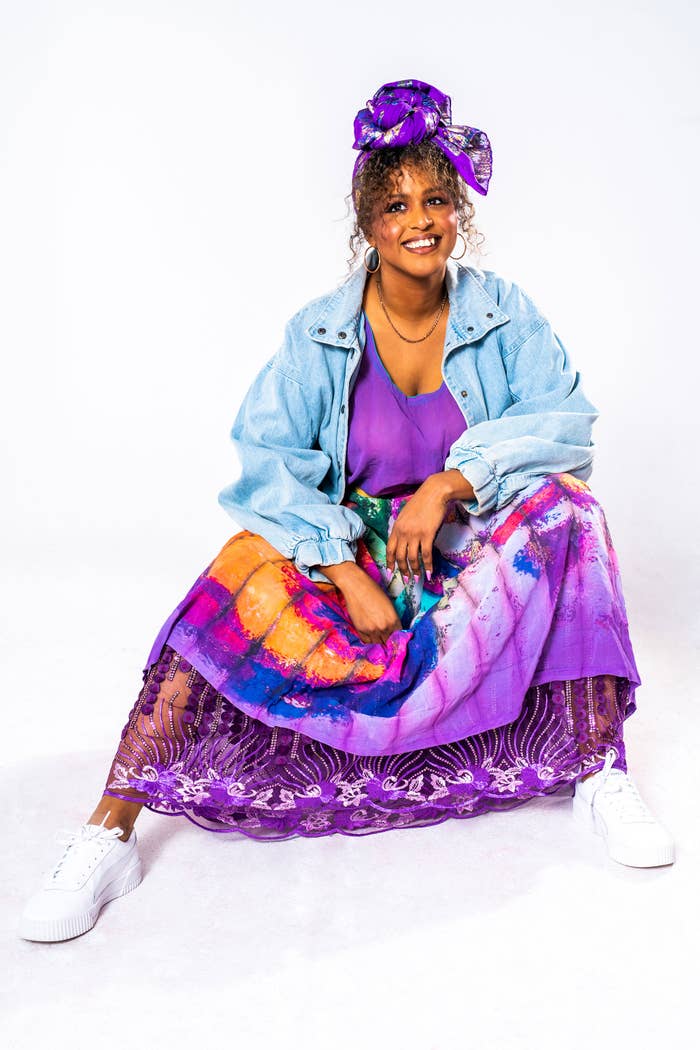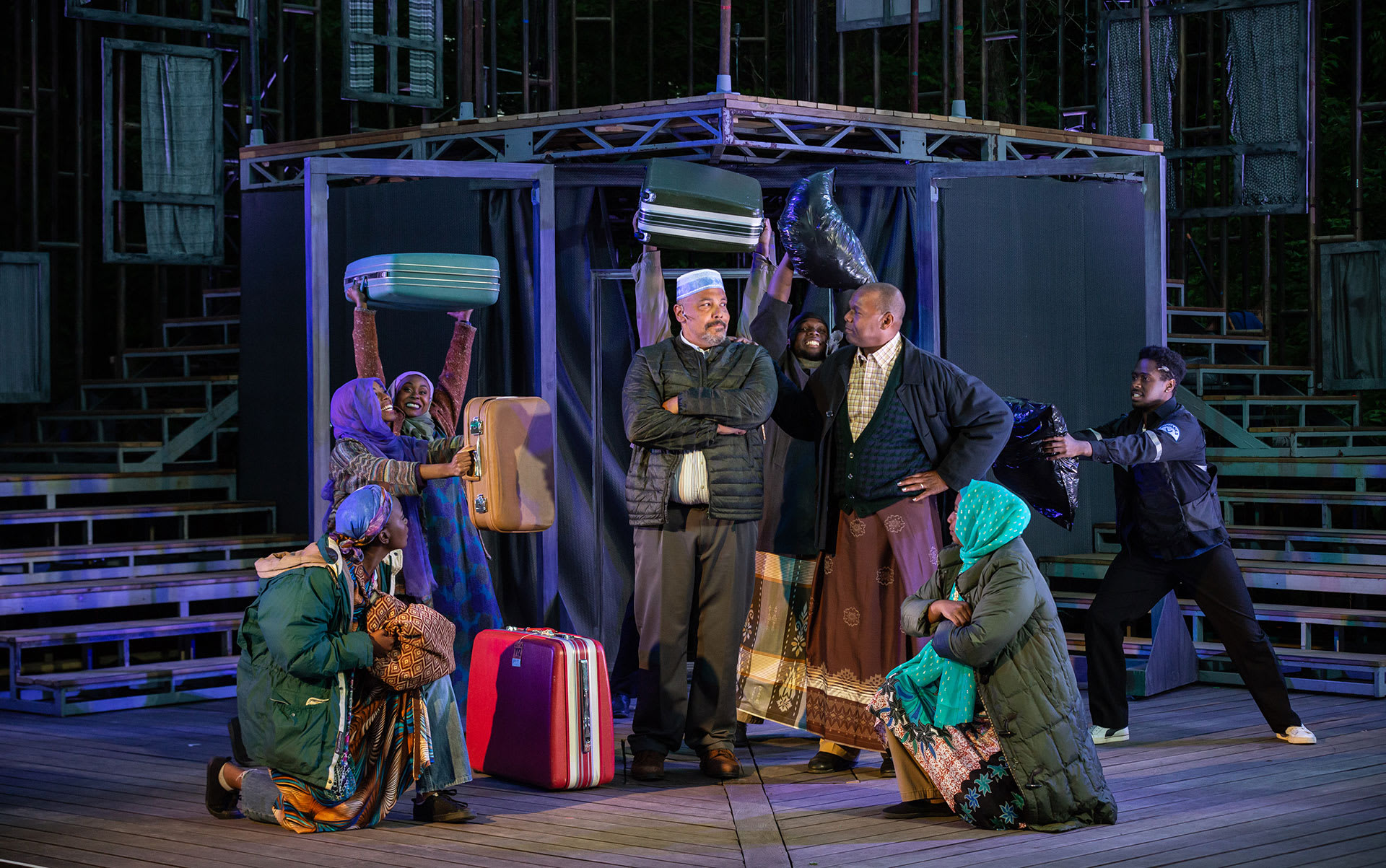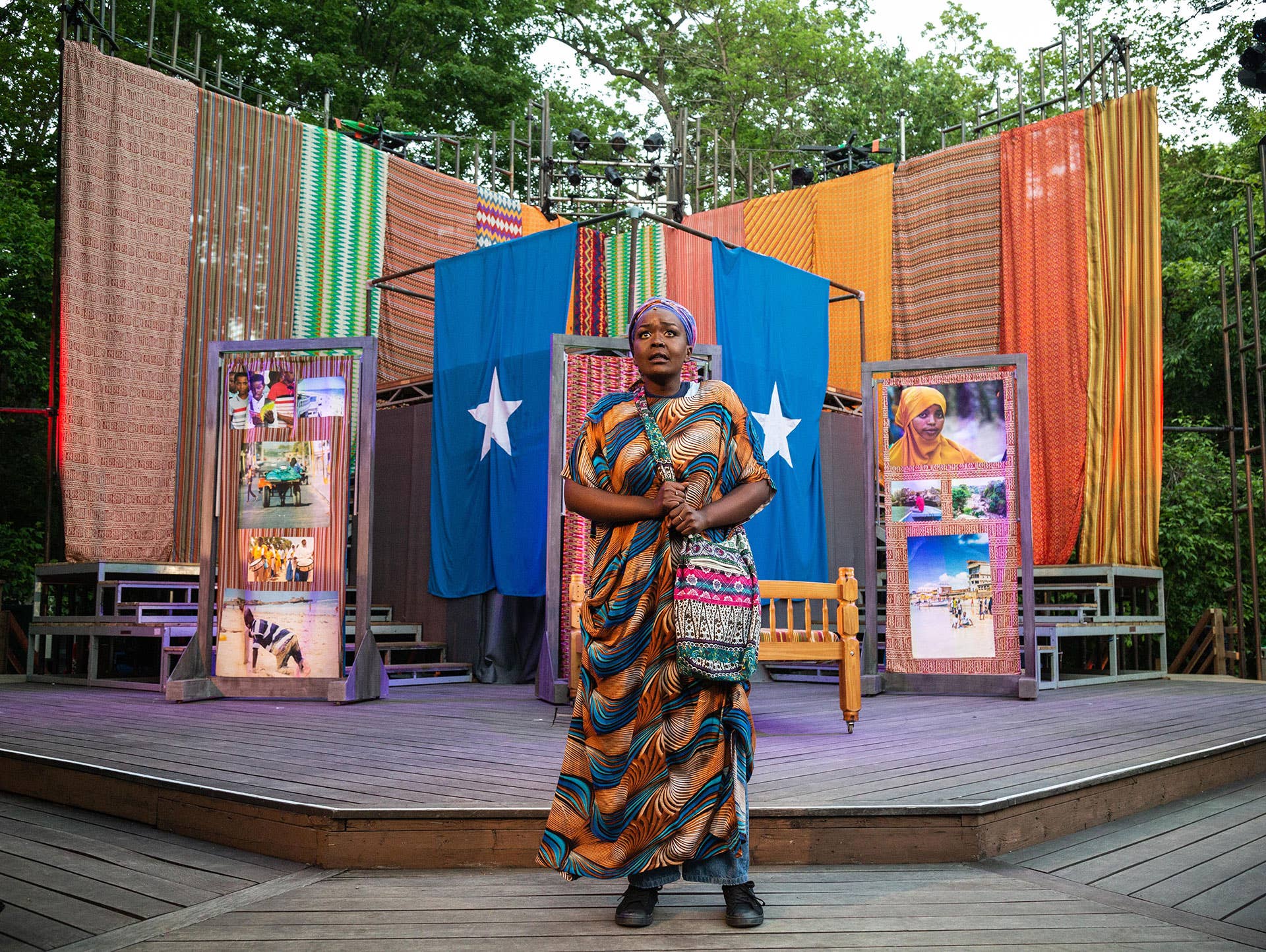
Considering how entrenched Somalis have been in enclaves throughout the city of Toronto since our arrival en masse, I’m regularly met with experiencing ‘firsts’ within my community. This time, it was the debut musical created by Fatuma Adar that featured a familiar tale of displacement and a search for self-fulfillment that I’ve come to know so well.
Dixon Road, Adar’s childhood home and the play’s namesake, is an Etobicoke neighbourhood known for its cluster of low-income apartment complexes—densely populated with both new and former Somali refugees, as well as their children. Although the performance itself doesn’t spend too much time focusing on the neighbourhood and its characters or reputation, there’s a knowing implication, a wink, to Dixon Road’s Somali audience regarding the neighbourhood and everything it represents. To those of us whose parents settled in Toronto’s most western suburbs during and following Somalia’s civil war in the early ’90s, Dixon Road is just one of many nooks scattered throughout the GTA that symbolize culture, loss, rebuild, community, scrutiny, isolation, and stories yet to be told. Usually simultaneously.
I’m not a musical theatre buff, but I had no doubt in Adar’s assertion that this work was five years in the making. The themes, humor, design, songwriting, and vocal stylings made for a piece with palpable thoughtfulness. It was deeply amusing and foreign to see nostalgic references through a lens like the stage.
Just a day after a previewing Dixon Road at Toronto’s High Park’s Amphitheatre, I caught up with Adar to discuss the inspiration and process behind her musical.

What was the nature of your involvement in Dixon Road?
So I wrote the book, lyrics, and music for the show, which means I wrote the story, I wrote the music, I wrote the lyrics. So it’s something that I started like five years ago. It started with one song and an idea for a story. And for the last couple of years it’s been in production with Musical Stage Company and Obsidian Company, which is a Black musical theatre company. They just kept giving me workshop after workshop to test out the new story, to test out the material, to test out the songs. And I’d work with whoever they brought into my orbit.
So is this your debut work?
Yeah, it is my debut play! I always grew up thinking I’d go to med school. And once I got there, I dropped out of med school and changed to an English major and then I went into publishing. It was during that time where I was growing up and I just kind of kept going. I’d often think, over and over again I’d come up against this insecurity that I didn’t have theatre school under my belt. I wasn’t raised going to plays—we were lucky to head to the movies once a year. It just wasn’t something that was accessible to us.
I’d wonder how I’d write a musical with no experience, but then I thought to myself that people were always doing DIY mixtapes and EPs themselves. You don’t have to know how to read sheet music. I used whatever resources I had, like Garageband. Some songs were just voice notes on my phone.
“I think watching this play, it’s immediately obvious a diasporic Somali kid wrote it.”
What is the play’s relationship to you? Is it a plot based on your own experiences, or even the experiences of Somali Torontonians around you?
It’s semi-autobiographical, which means that there are elements pulled from real life—they’re real-life experiences. So when my dad first came to Canada he was posted up in Dixon Road and was in those buildings and he was one of the first community members who were there. Then eventually he wasn’t able to continue the career he had back home. When he first came he was a cab driver and worked for rent-a-car companies, then eventually became a truck driver. But, the way that my father saw himself—especially around Somalia Day, you’d see him whip out the suit and head to a conference. It seems like every Somali father is involved in politics somehow. He had all these pictures from when he’d cover campaigns and stuff like that. So his life there was so different from what it became here. And I noticed the difference early. I always saw him as a diplomatic person, but when he’d pick me up from school, kids would say, “Oh, you go home in a cab everyday. Is your dad a cab driver?” So there was a difference in how I’d see him, and how the community would see him.
The story is set in the ’90s, and I was born in ’91. The generation before—I mean this idea that you have a country based on a history of violence, though my dad speaks about the country so hopefully. He witnessed almost the birth of the country, whereas my birth coincided with all the fighting. So there’s a difference and a tumultuous relationship with the character’s perception of Somalia and her father’s, and what hope meant.
She’s 16 in the play, which is the generation before me. More like my aunts who were teenagers when they came. They also had such an interesting relationship with everything, and came to the realization that they’d be spending more time in a new country than in Somalia.

It’s such an ‘American’ interpretation of an explicitly Somali story. But when you’re born in Canada and in between these two cultures, your vision of Somalia is going to be Westernized, naturally. When I think of the country’s past, I’m not always hearing Somali folk songs or seeing its indigenous art. The way I see my parents’ upbringing and my culture is through the lens of the media I grew up consuming most—not what my parent’s consumed. Was that your angle? To use a classic, quintessential American piece of media like musical theatre, but to tell a Somali story?
Yes, I think watching this play, it’s immediately obvious a diasporic Somali kid wrote it. Some people on social media, only a few, had critique about the prayer scene, and I was a weird kid, OK? I hear a little music in prayer, it’s musical to me and I would think of how to create a musicalized version of my prayers themes. But I also understand that there are so few artistic interpretations of Somali culture on stage and in writing, let alone Islam, so I understand that seeing that for the first time ever can be so jarring for some. And since then we’ve removed the prayer scene and made it a little less literal.
But I think it’s an important discussion to have: If we ourselves can’t artistically interpret our own culture, then who can?
Dixon Road plays at Toronto’s High Park Amphitheatre from now until June 19.


